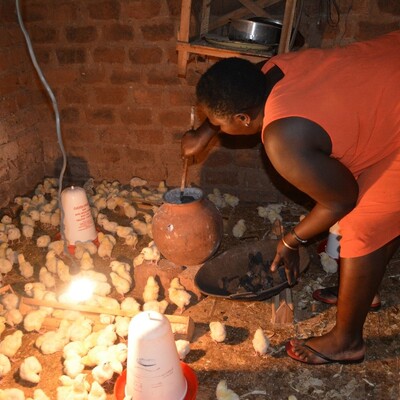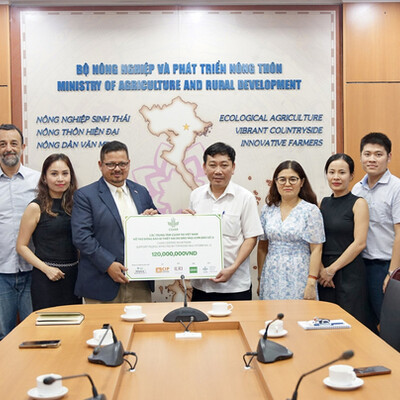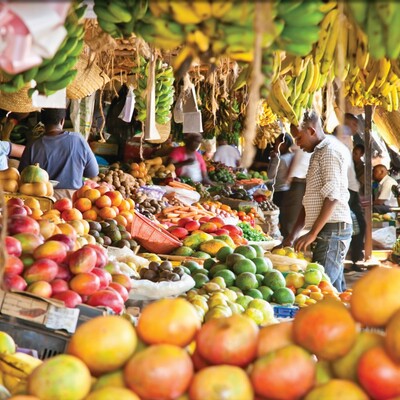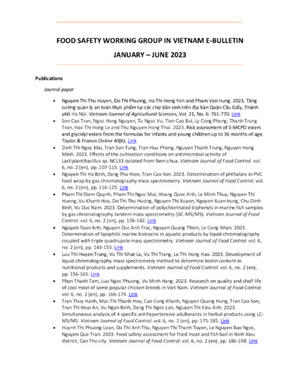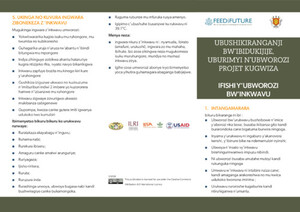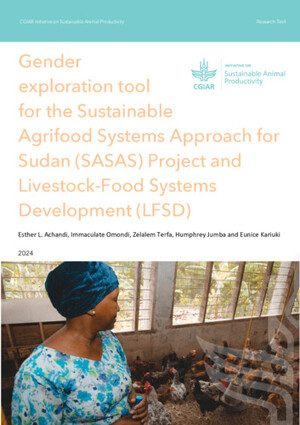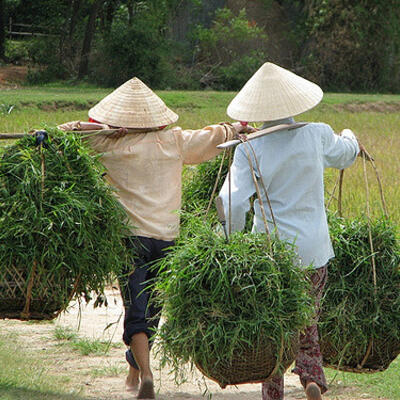
Mapping the extent of gender responsiveness in agriculture and food policies in Africa
Women account for nearly half the workforce within the agricultural sector in low- and middle-income countries (LMICs) and are involved in various activities across agricultural value chains. From providing inputs and services such as traders or extension agents to farm-level work, women are deeply engaged in agricultural systems, generating income, and employment and ensuring their household’s and community food security.
Despite their essential contribution, women typically have limited access to resources such as land, farm inputs, education, financial services and technologies needed to maintain viable agricultural activities and decent income opportunities in the sector. Many women and their households continue to suffer from food insecurity and malnutrition. Many of these constraints are structural. There is, therefore, a need across LMICs to improve national agricultural policies, development plans and strategies to benefit women, with the acknowledgement of women’s role in agricultural value chains, environmental management and food security being key to addressing gender gaps.
The mainstreaming of gender in national policies is considered a key step towards gender equality for economic and social development outcomes. Such approaches can increase women’s access to productive resources, improve health and nutrition and increase agricultural productivity gains overall.
Scientists from the International Livestock Research Institute (ILRI) and the International Food Policy Research Institute (IFPRI) are conducting a joint study assessing the status of gender integration in national policy related to agricultural and food systems in Africa. Harriet Mawia, the lead researcher from IFPRI explains that the study has reviewed existing analytical tools that assess the extent of the integration of gender in agriculture and related policies.
According to Mawia, ‘upon identifying gaps in the available analytical tools, the study is proposing a new framework for more effectively conceptualizing and analysing the integration of gender in policies designed for attaining or maintaining inclusiveness and sustainability of food systems.' The new framework builds on analytical approaches and tools previously used to assess the integration of gender in policies related to agriculture and climate change in LMICs. A key feature of the new tool is its expanded focus on (assessing gender integration in) policies across multiple key domains that influence food security, agricultural development, and overall food system outcomes. This offers a more holistic approach to determining whether a country’s policies regarding agriculture and food systems are supported by appropriate gender measures that ensure adequate integration of gender considerations for the effectiveness and equity of agricultural development. We will also use these approaches and tools to assess whether the integration of gender considerations in policy documents has improved over the years.
Dolapo Enahoro, a senior researcher from ILRI who coordinates the project, further notes that 'with the framework, which is currently being tested in four countries in Africa, 'we hope to contribute a useful analytical approach for linking the analysis of existing policies and the designing of new ones to the aspirations of governments in LMICs. The approach will help to address gender equality and women’s empowerment as integral components of agricultural development strategies for sustainable food system transformation.' The framework, and findings from applying it in the four pilot countries, will be published by the CGIAR GENDER Impact Platform when available.
Alessandra Galiè who heads ILRI’s gender team reiterates that 'gender-responsive, multi-sectoral policies and the right tools to drive the development and operationalization of these, are needed for addressing the slow progress toward gender equity experienced in many low-and-middle-income nations, despite decades-long efforts to address the impacts in their societies of the disadvantages peculiarly faced by women.'
Isabelle Baltenweck, leader of ILRI’s Policies, Institutions and Livelihoods Program, further highlights that ‘appropriate analytical tools for gender-related policy analysis are part of the broader outputs of CGIAR’s gender research. This work is supporting governments, and the public and private sectors, in the multi-level efforts towards improved food security, employment, nutrition, employment and sustainability outcomes in the food system.'
This work was carried out under the CGIAR GENDER Impact Platform, which is grateful for the support of CGIAR Trust Fund contributors: www.cgiar.org/funders.








